In a turbulent, disturbing year, the change of seasons has remained constant and the changing colors of the leaves signal the peak of the autumn season.
It is a time to explore the mountains, forests and countryside and enjoy the annual color show, as mountains across Korea turn shades of red, orange, yellow and more.
The color fest will not last long, with the winter season lurking just around the corner.
Before the brilliant explosion of colors makes way for heavy snow and frost, the Korea Tourism Organization recommends five trails that showcase the true beauty of autumn.
When exploring these sites, wearing a mask is mandatory and a 2-meter distance should be observed at all times on concerns of the ongoing COVID-19 pandemic.
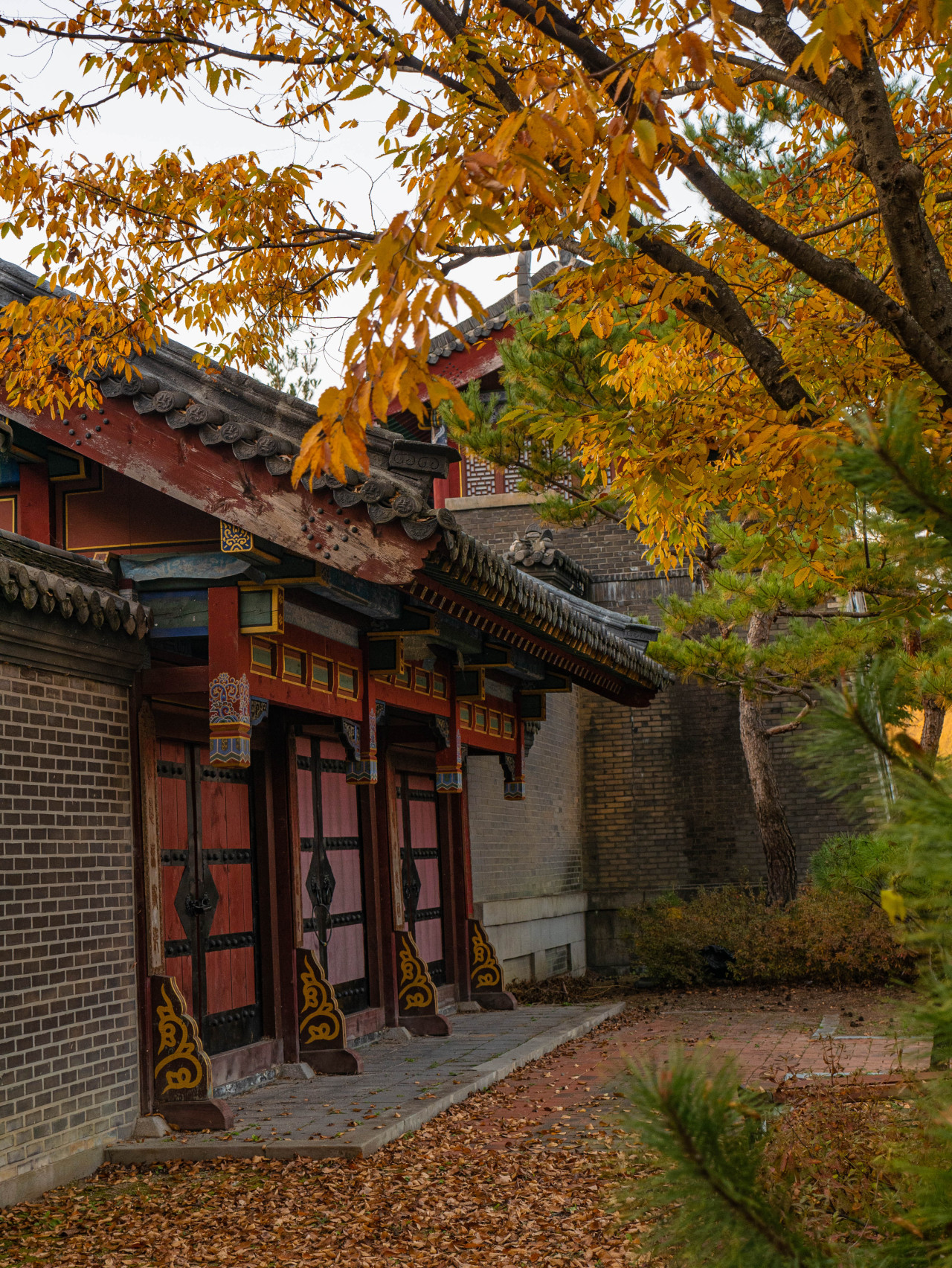 |
Ondal Tourist Attraction Site (KTO) |
Ondal Pyeonggang Romance Trail
Danyang, North Chungcheong Province
Sobaeksan Jarakgil is a collection of 11 trails that feature the beauty of the delicate yet steep mountain ridges.
Of the trails, Trail No. 6 Ondal Pyeonggang Romance Trail is famous for its fall beauty.
The 13.8-kilometer trail is named after the characters of the folkloric love story of Gen. Ondal and Princess Pyeonggang. The beautiful scenery of Namhan River flows along the trail, which takes approximately four hours on foot.
At the end of the trail is the Ondal Mountain Castle and Ondal Tourist Attraction Site.
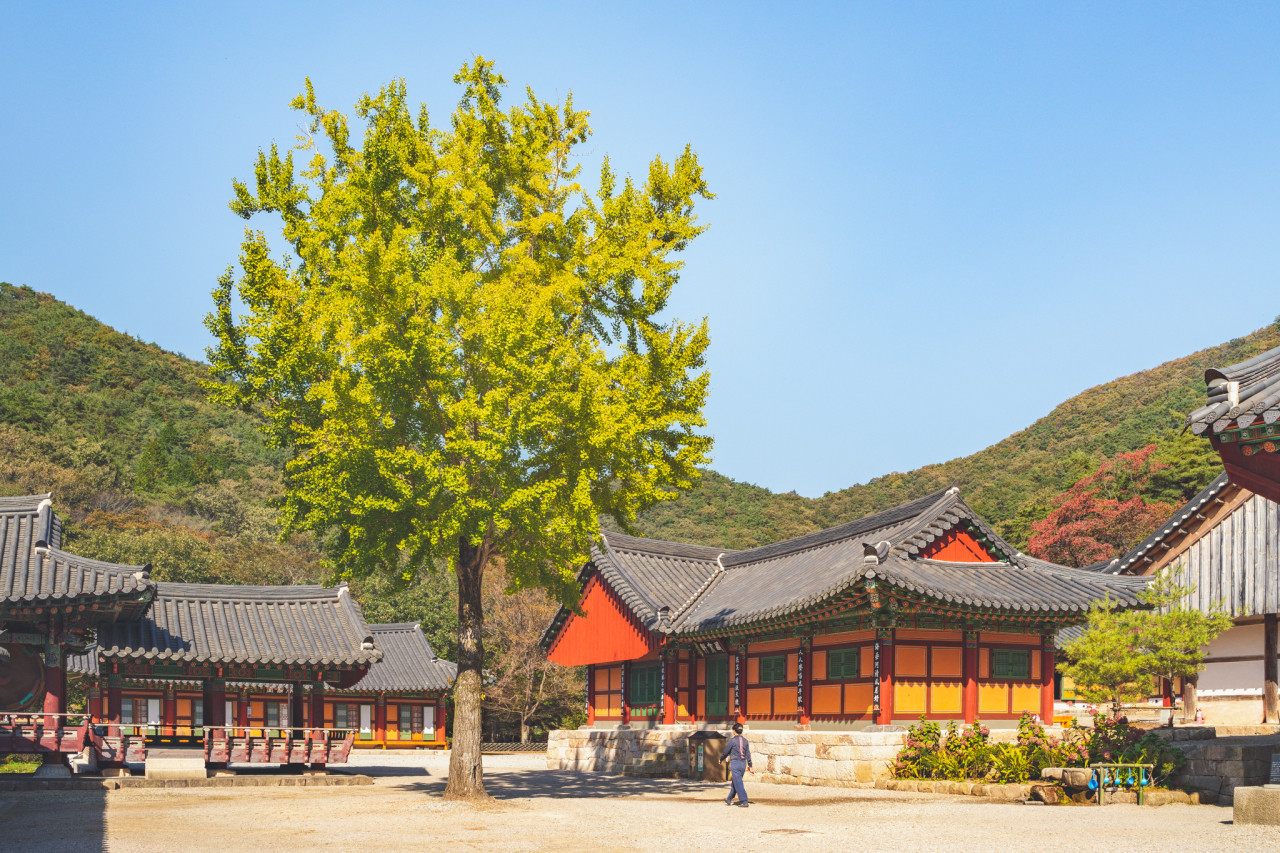 |
Ginkgo tree at Bulgapsa (KTO) |
Bulgapsa Trail
Yeongkwang, South Jeolla Province
Bulgapsa Trail starts from the temple after which it is named. Bulgapsa was the very first Buddhist temple built in Korea. Monk Marananta, who was the first Indian monk to come to Korea, founded the temple in 384.
The 15-kilometer trail visits Naesan Seowon, a private Korean Confucian academy that is now recognized as a cultural heritage site. It boasts a humble yet beautiful garden.
Fall foliage surrounds the trail, which takes some five hours on foot to complete. Some parts of the trail are not cleared, meaning visitors must be extra careful.
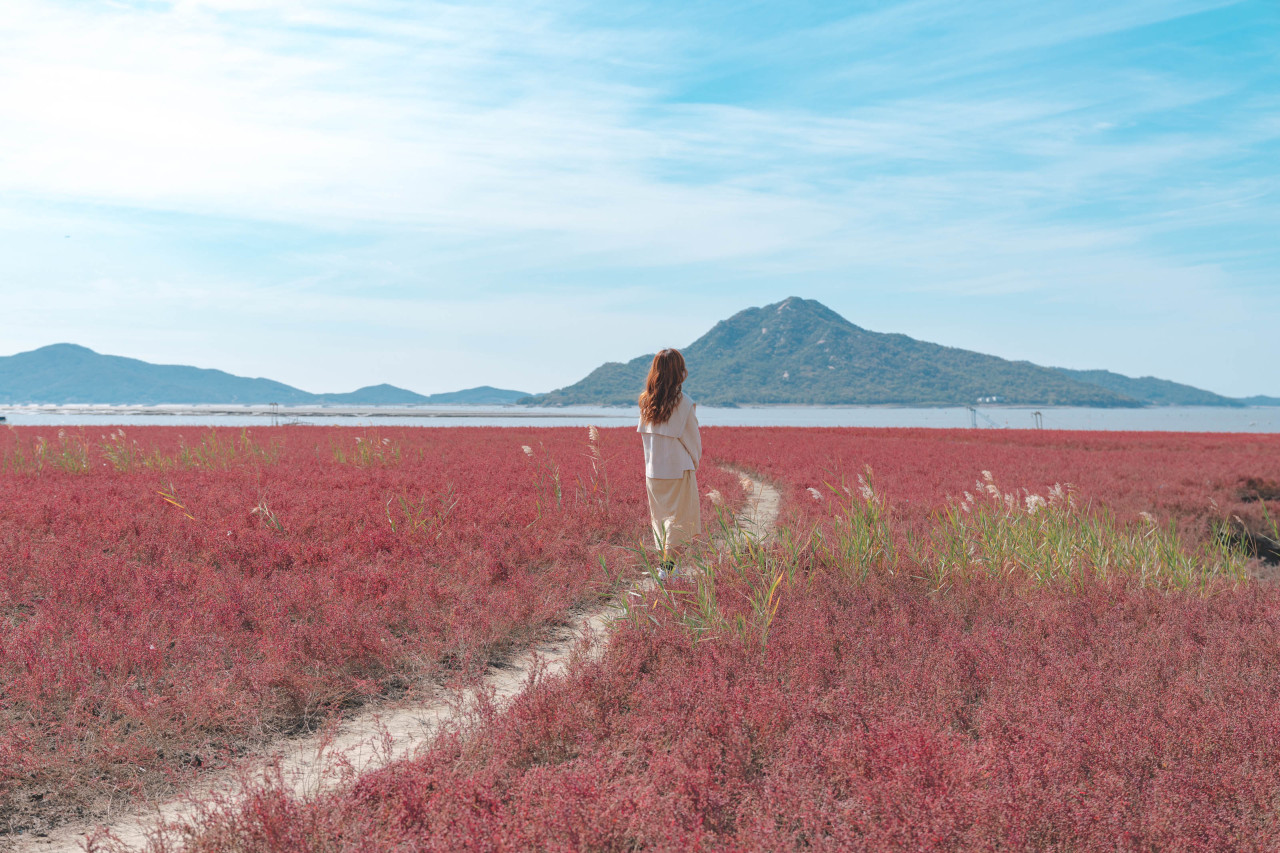 |
Behind the Changhuri Ferry Terminal, East Asian seepweed spreads out across the mudflat. (KTO) |
Ganghwa Nadeulgil Trail
Ganghwa, Gyeonggi Province
Ganghwa Nadeulgil Trail 16 begins at Changhuri Ferry Terminal. Situated near the West Sea, the trail offers the sight of the plains, ocean and mountains all at once.
Behind the Changhuri Ferry Terminal, East Asian seepweed spreads out across the mudflat, creating an eerie, unique sight. Then, the trail opens to a seemingly endless stretch of golden fields.
The trail is 13.5 kilometers long. It ends at Oepohang, a large port packed with eateries, restaurants and tourist shops. Trekkers can enjoy a hearty meal after trekking and pick up souvenirs there.
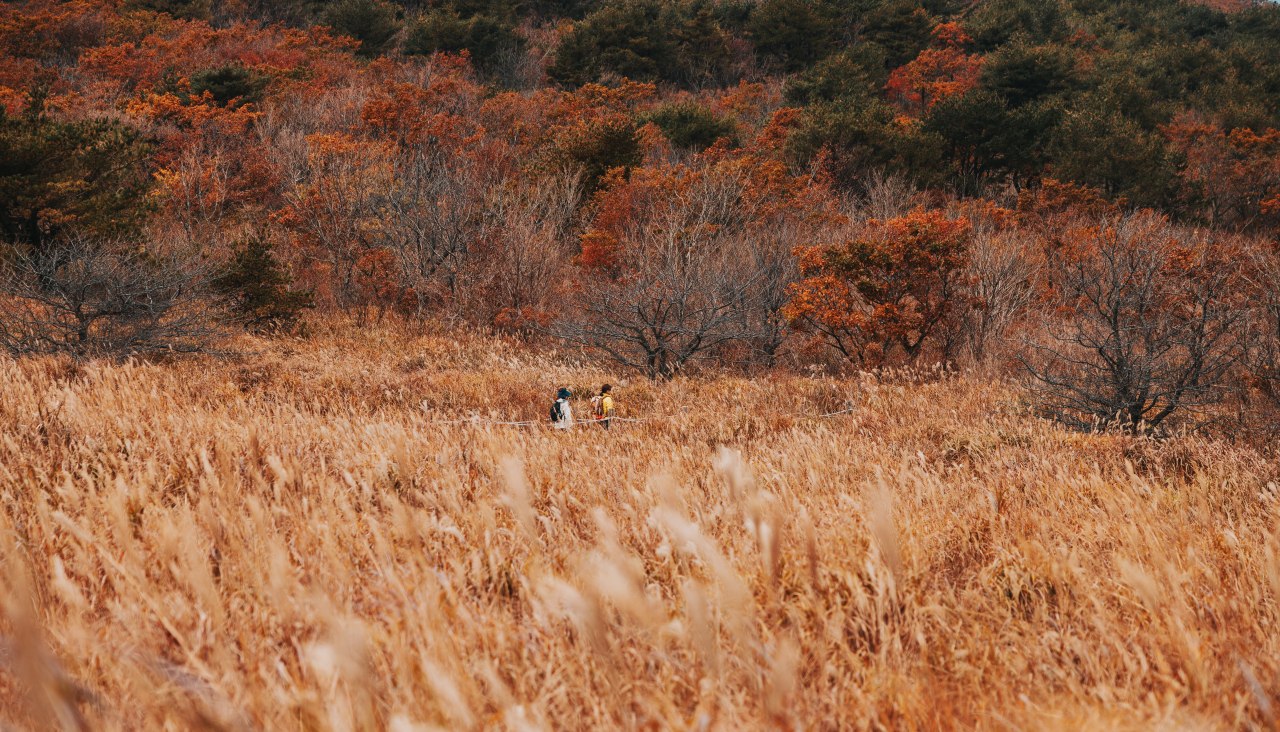 |
Meochewat Therapeutic Forest Trail (KTO) |
Meochewat Therapeutic Forest Trail
Seogwipo, Jeju Island
Though Jeju Island is most appreciated for its ocean and beaches, the southern island also boasts serene, centuries-old forests. Forest trails are found across the island, such as Saryeoni Forest Trail and Bijarim Forest Trail.
Meochewat Therapeutic Forest Trail takes its name from the Jeju Island dialect. “Meoche” means stone, and “wat” refers to field. As can be suspected from its name, the trail is rugged. Adventurers must wear trekking shoes or hiking boots for safety reasons.
The forest long remained primeval, untouched by humans. Its forest trail is about 6.7 kilometers long.
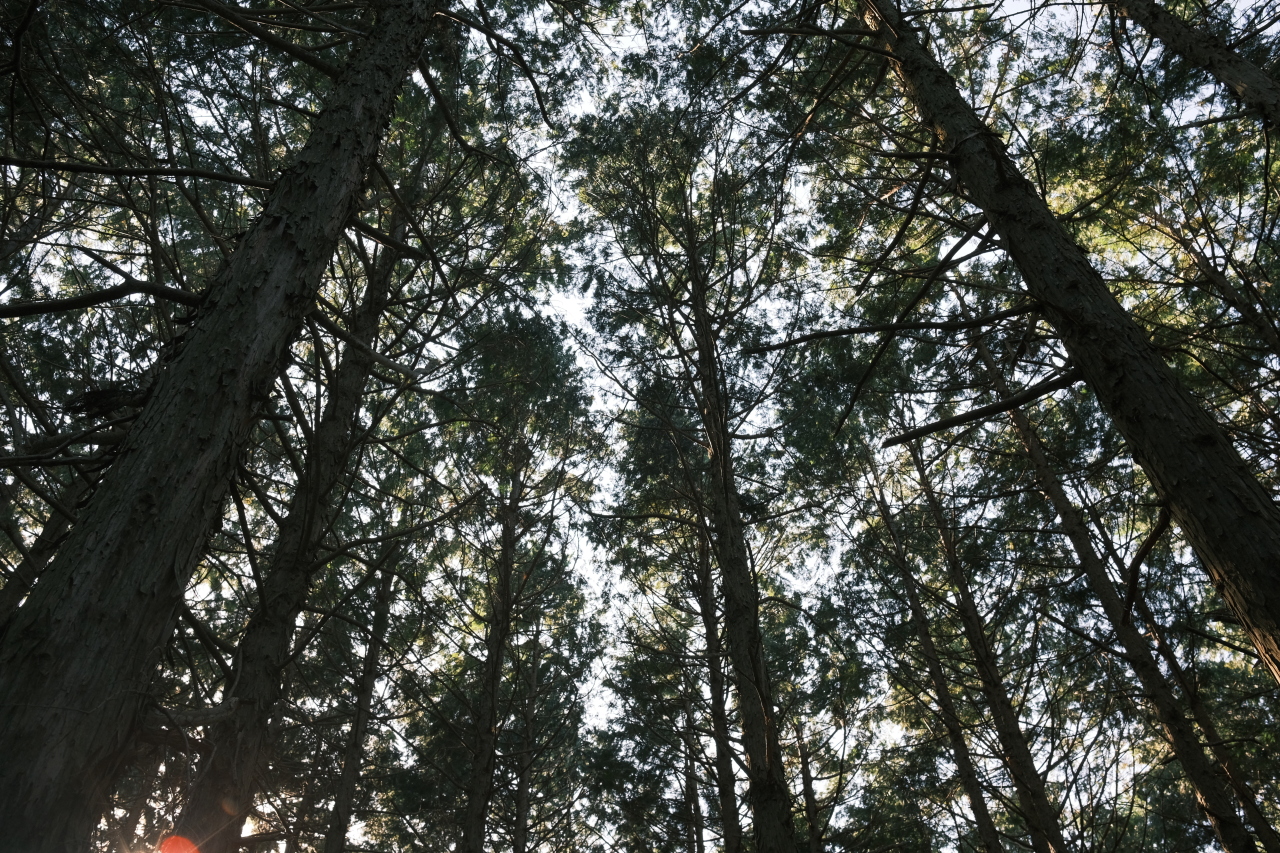 |
Yeongnam Alps plain is the largest habitat of silver grass. (KTO) |
Yeongnam Alps Sky Silver Grass Trail
Ulsan Yeongnam Alps is a group of tall mountains covering a small region where the North and South Gyeongsang provinces meet. Though the name may suggest steep mountain ridges, a plain is situated near the top.
The plain is home to the biggest habitat of silver grass in Korea. In the afternoon when sunlight falls on the mountain, the creamy white silver grass turns to shades of gold. Swaying with the wind, the silver grass creates a spectacular sight.
The 6.8-kilometer trail leads to the summit of Cheonhwangsan.
By Im Eun-byel (
silverstar@heraldcorp.com)












